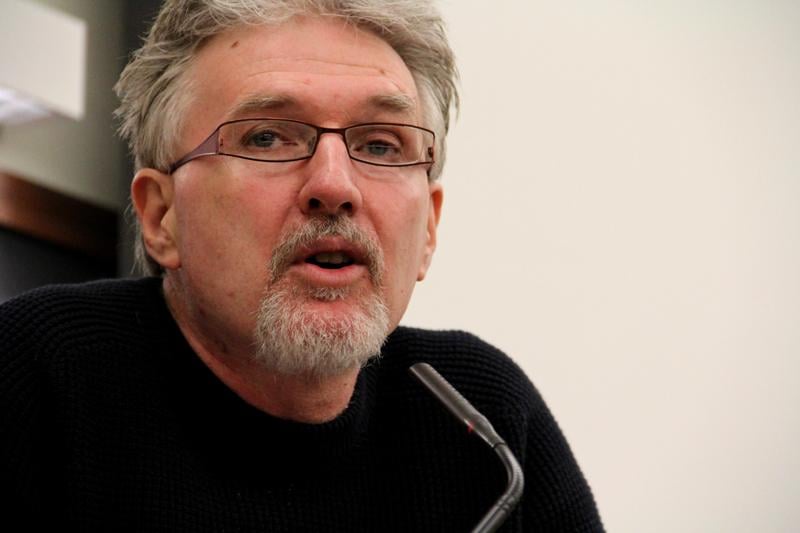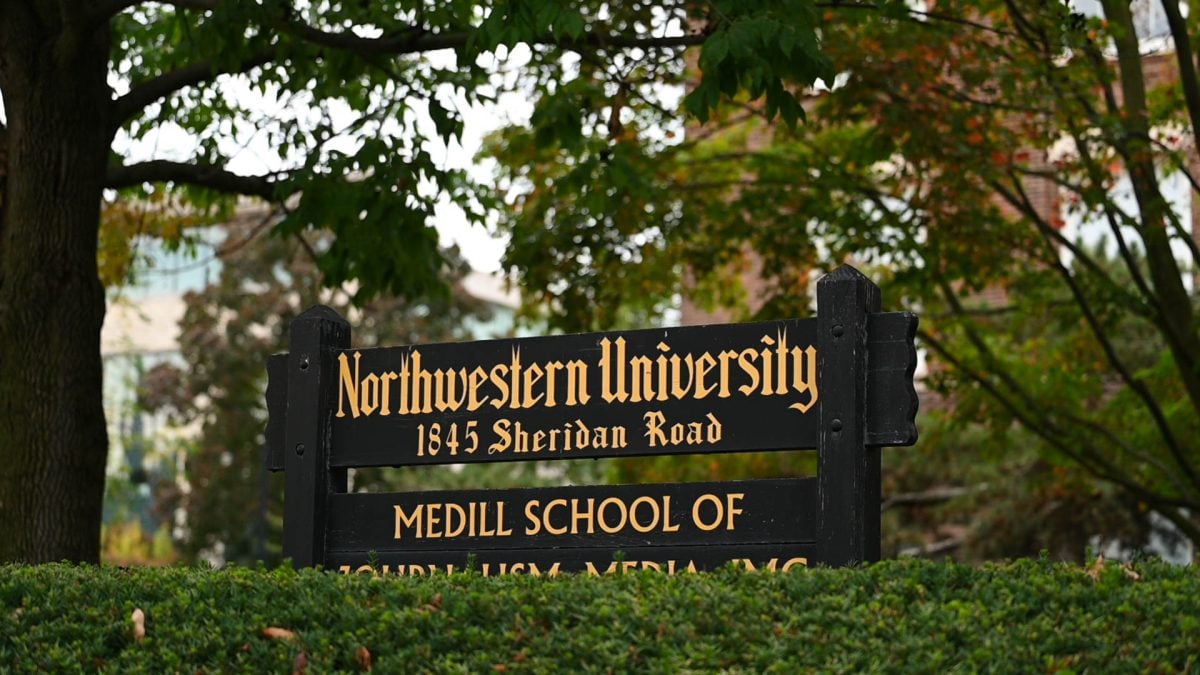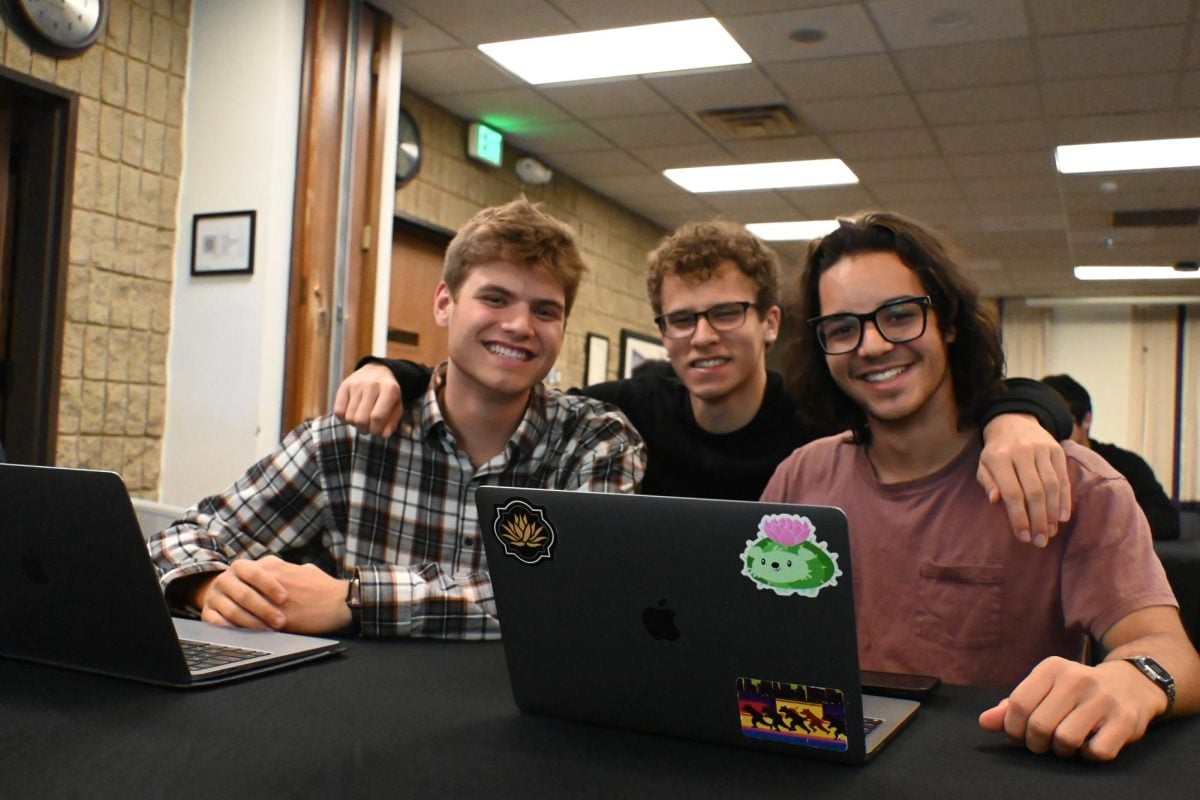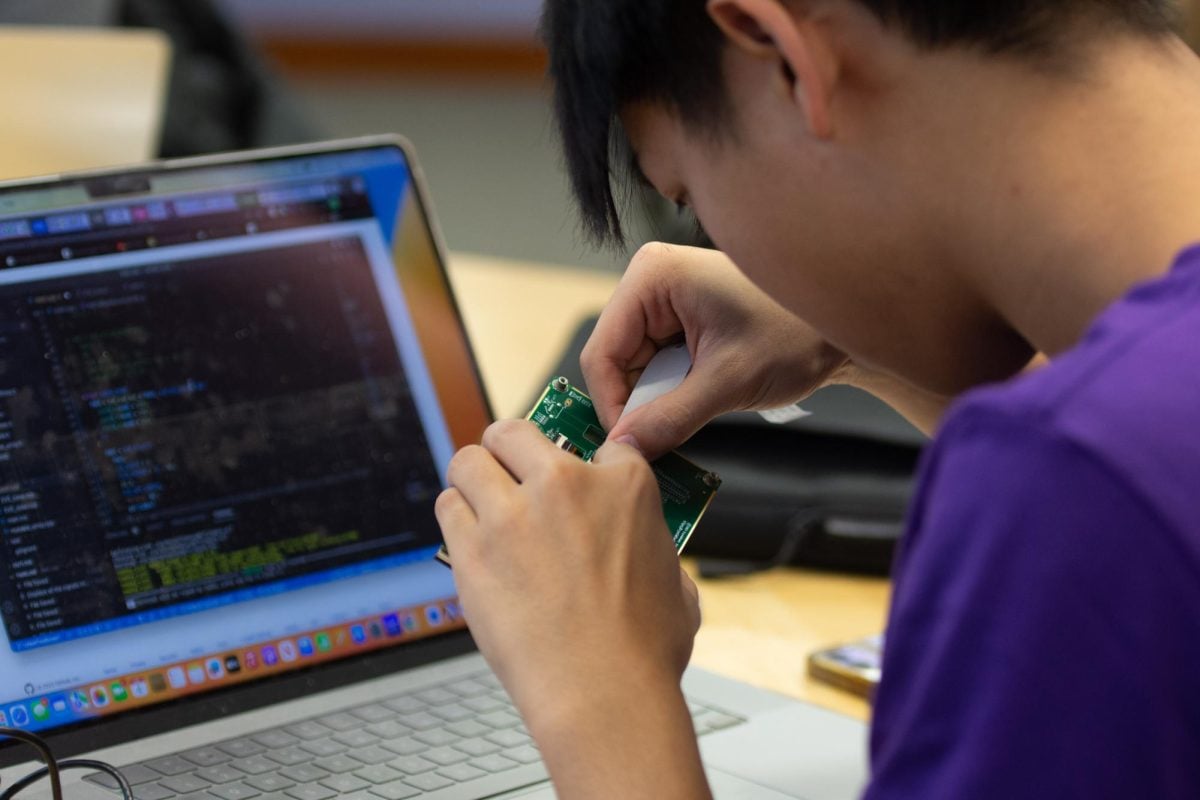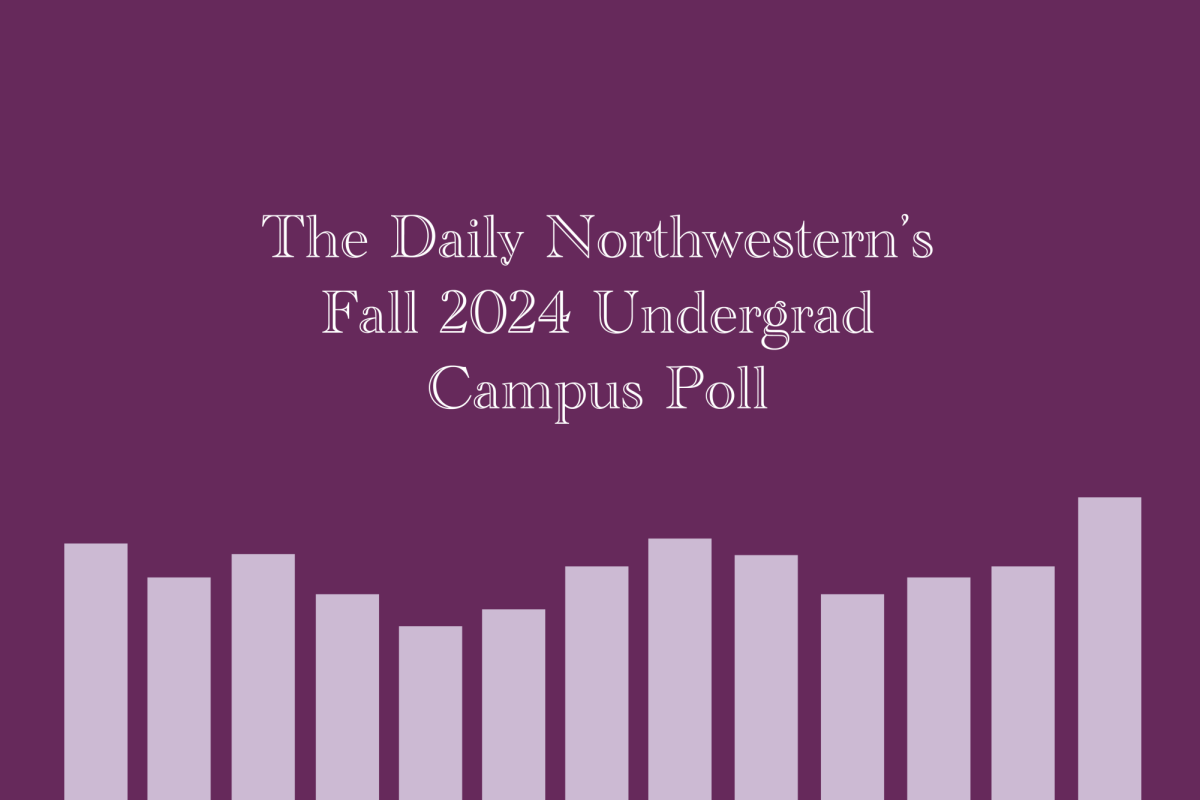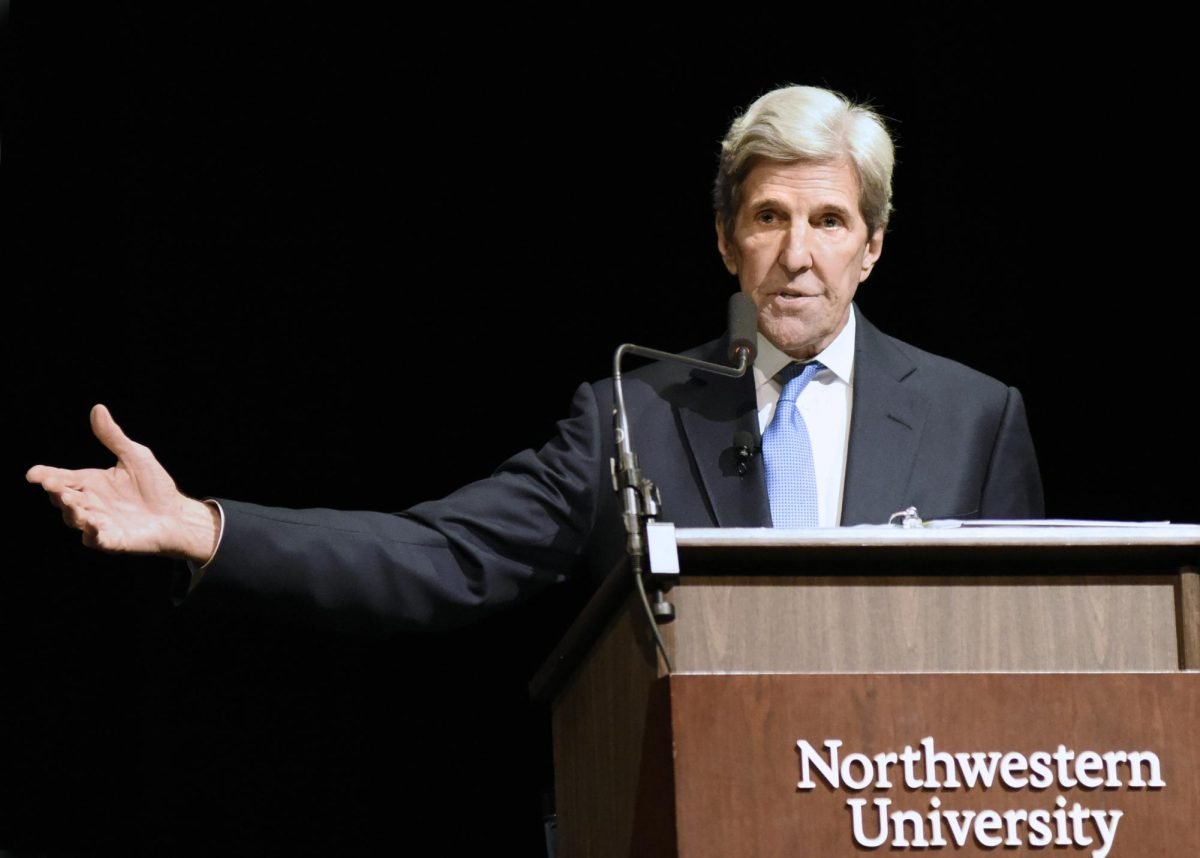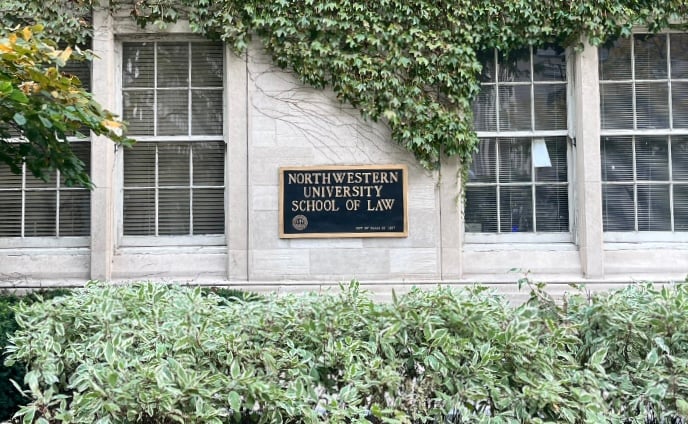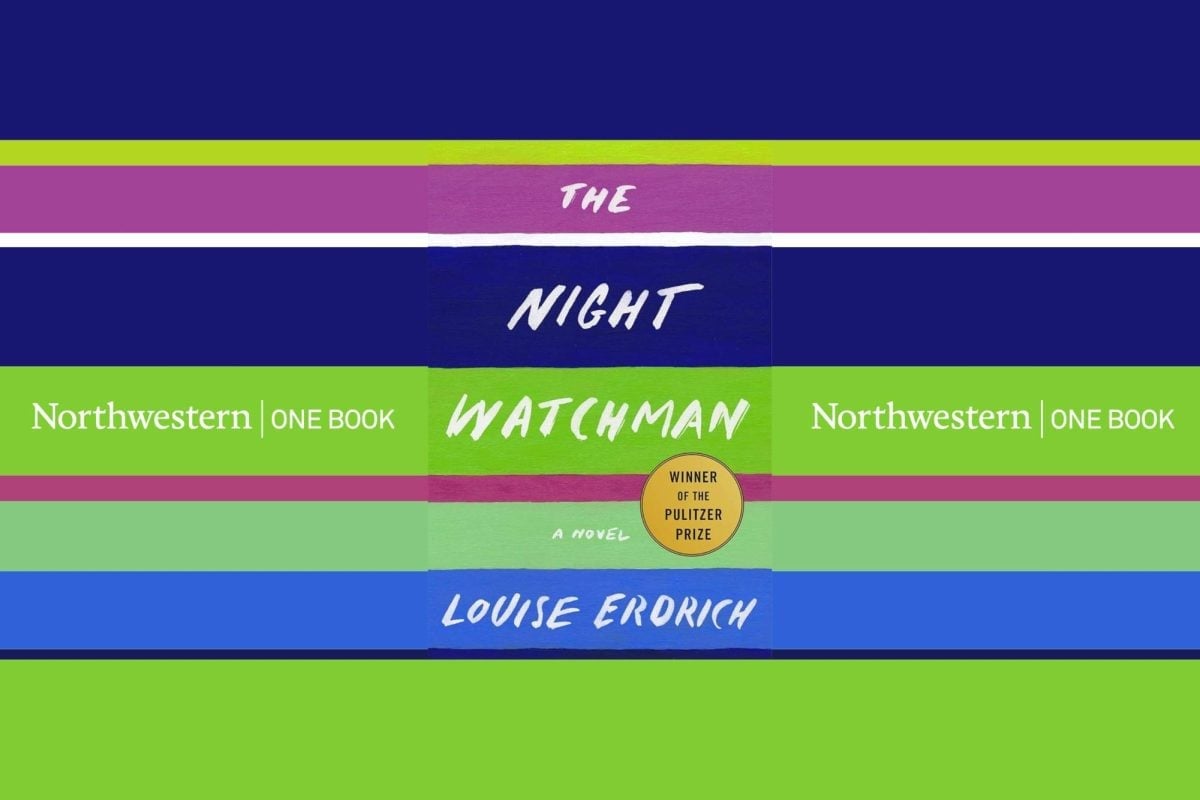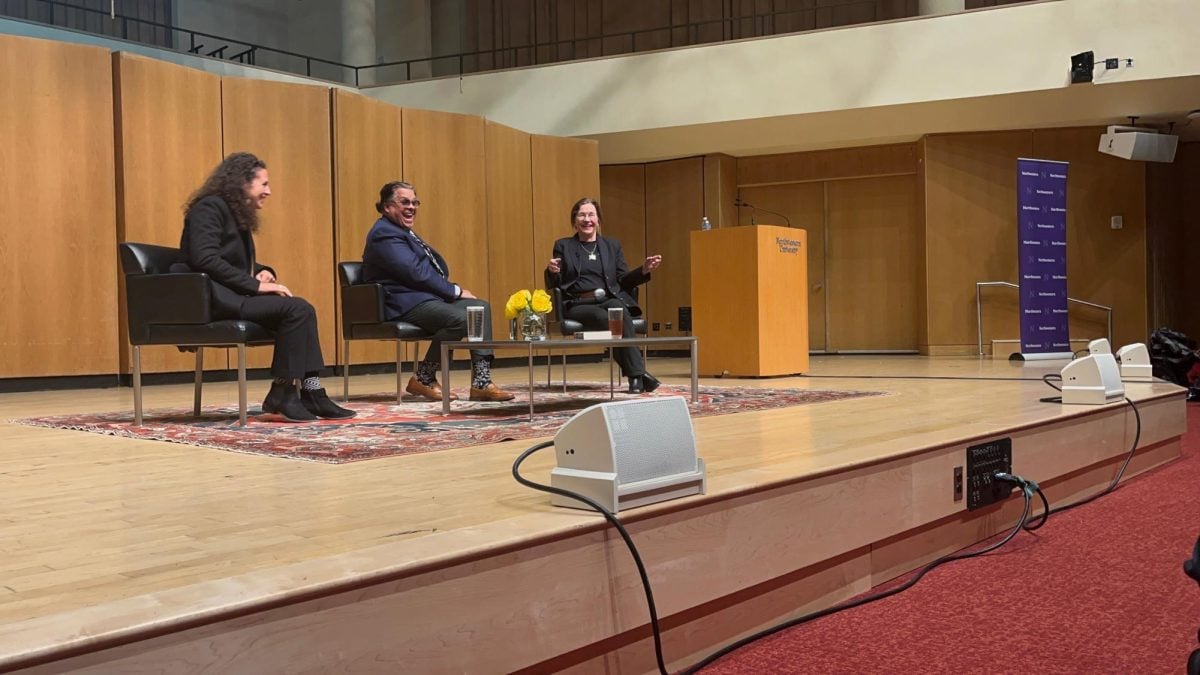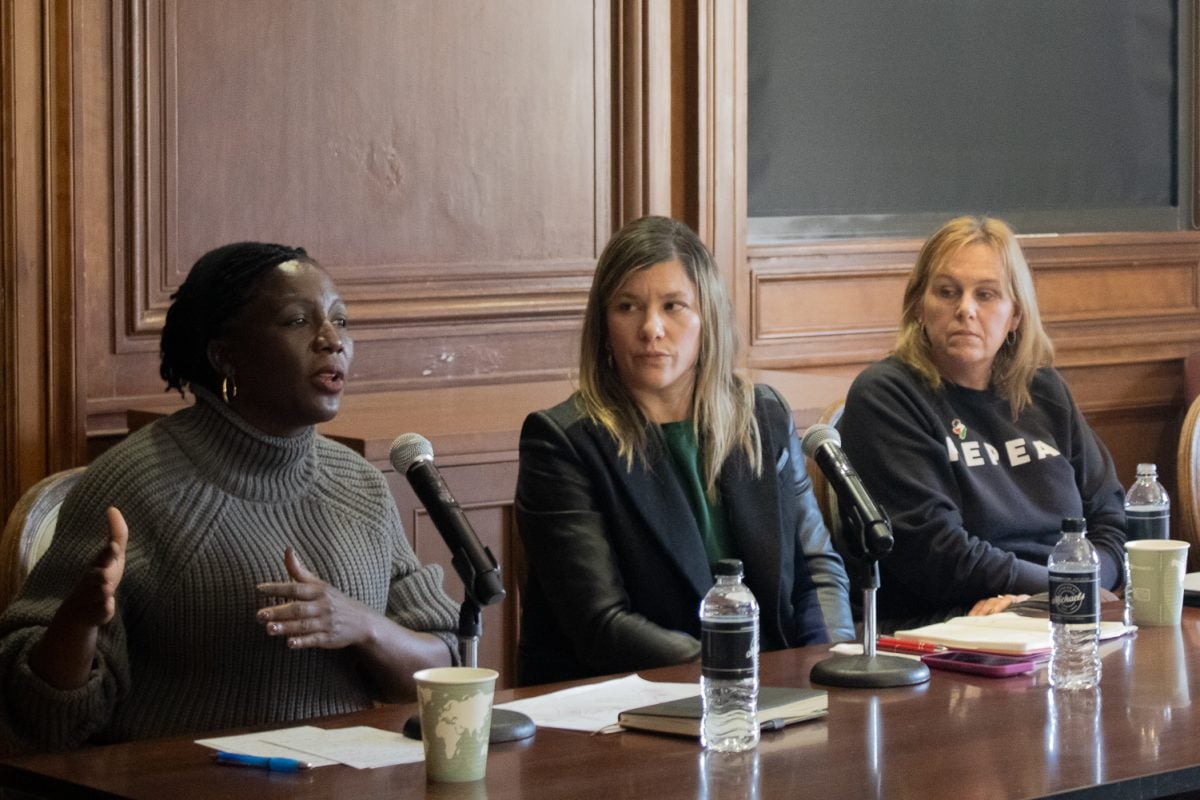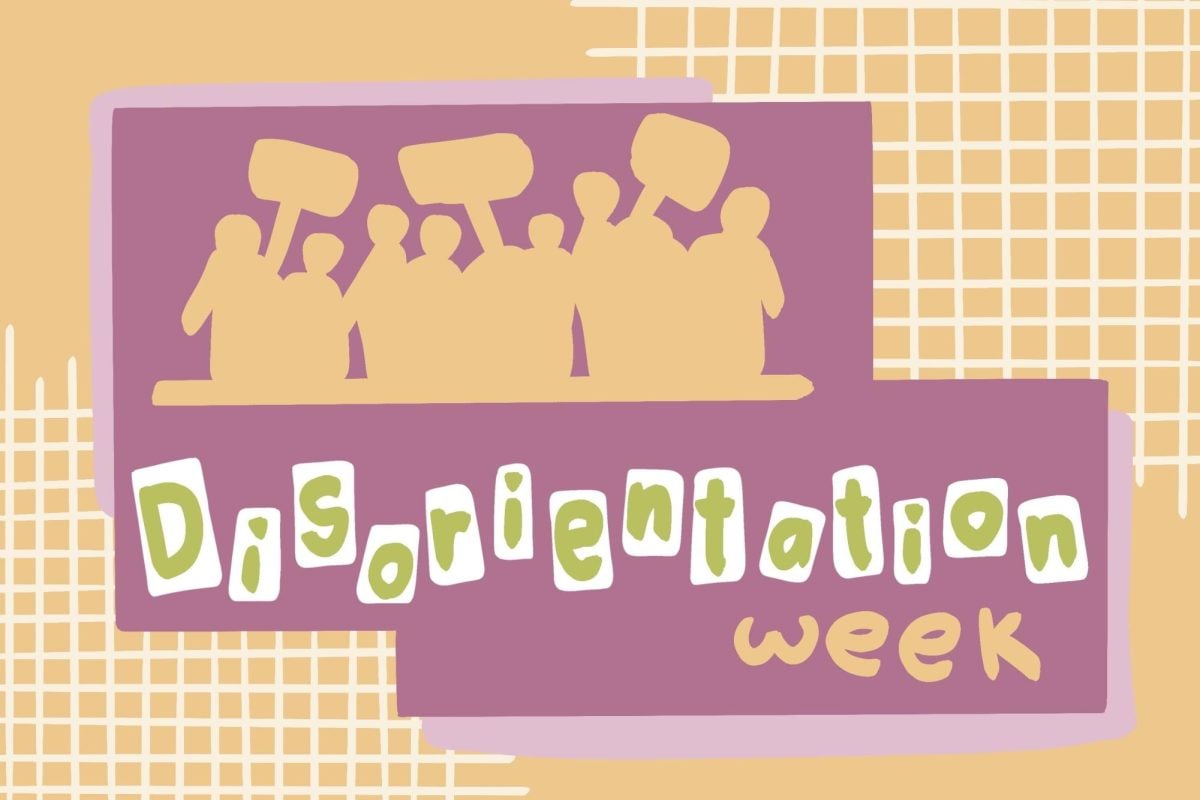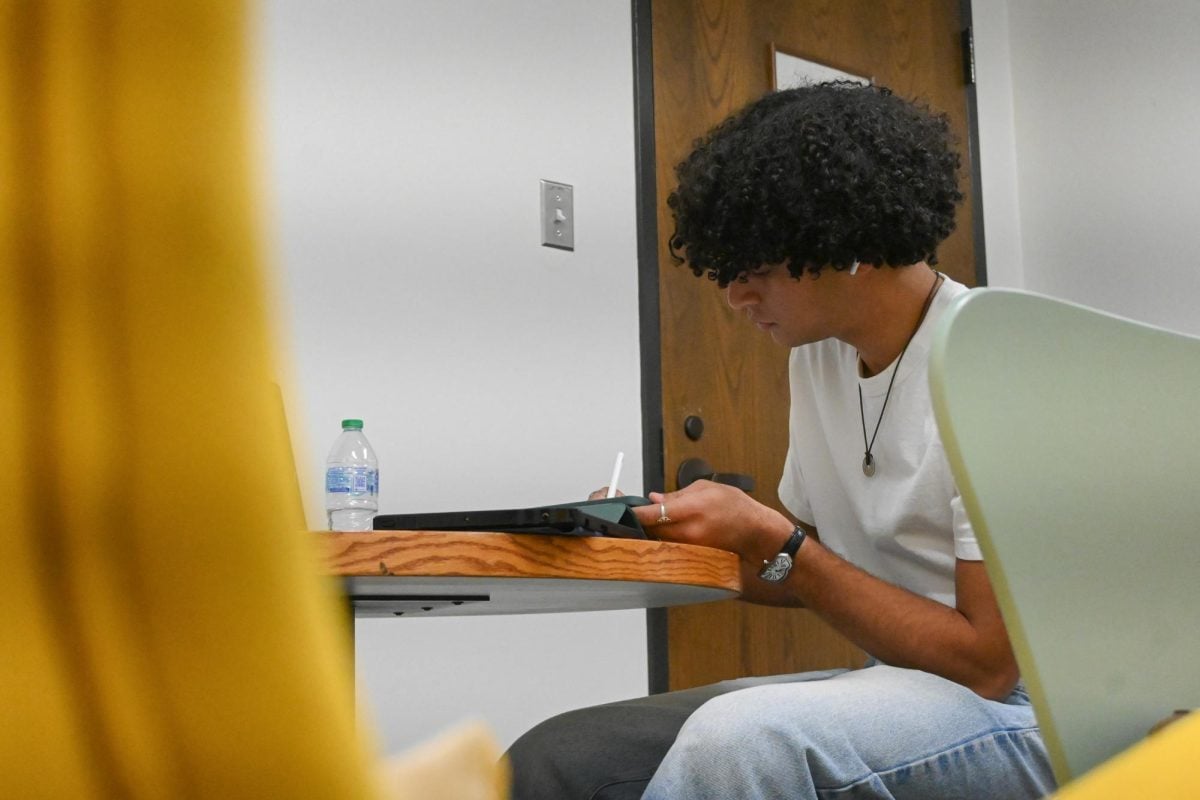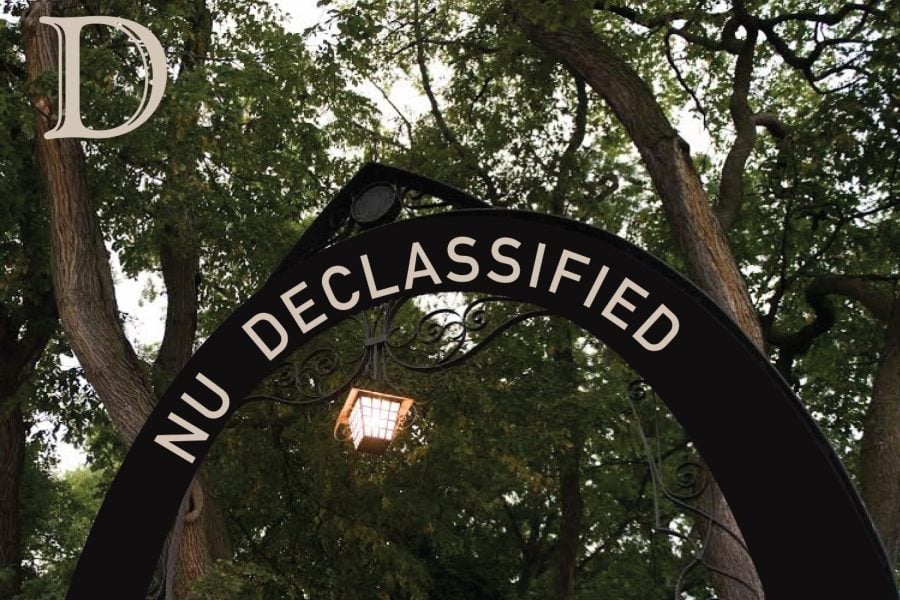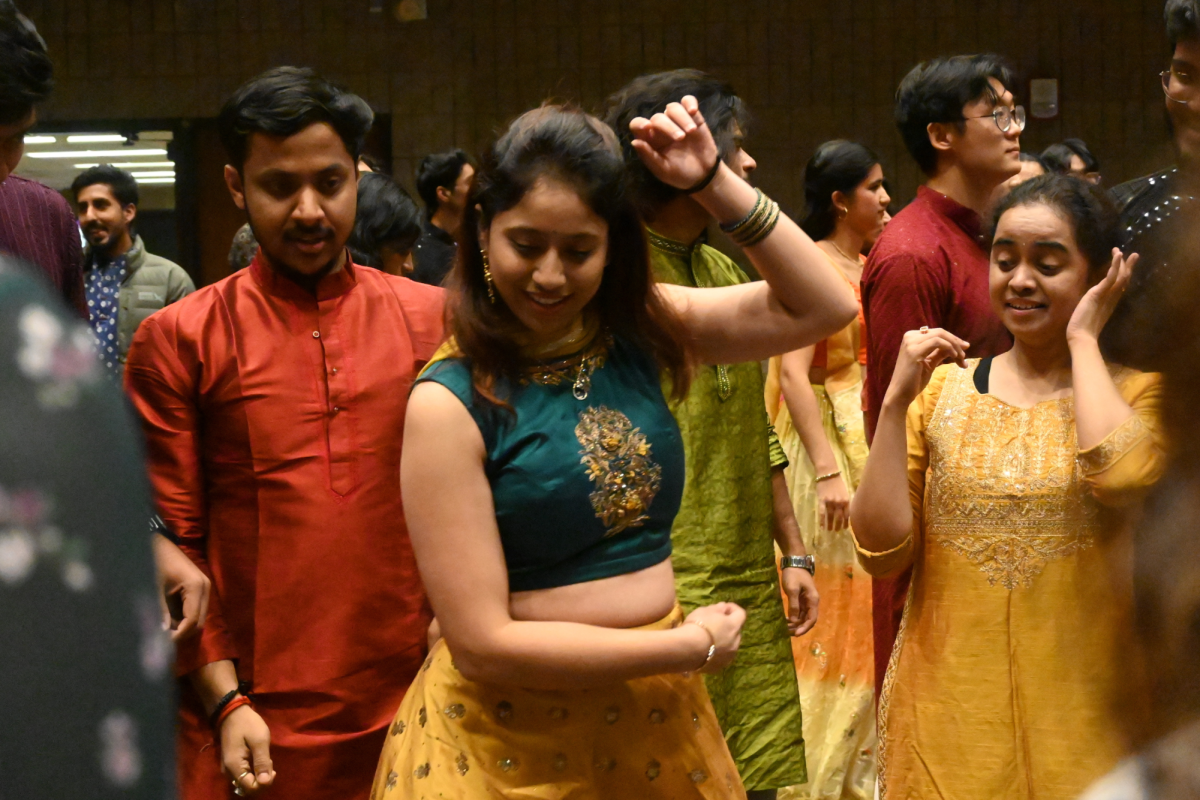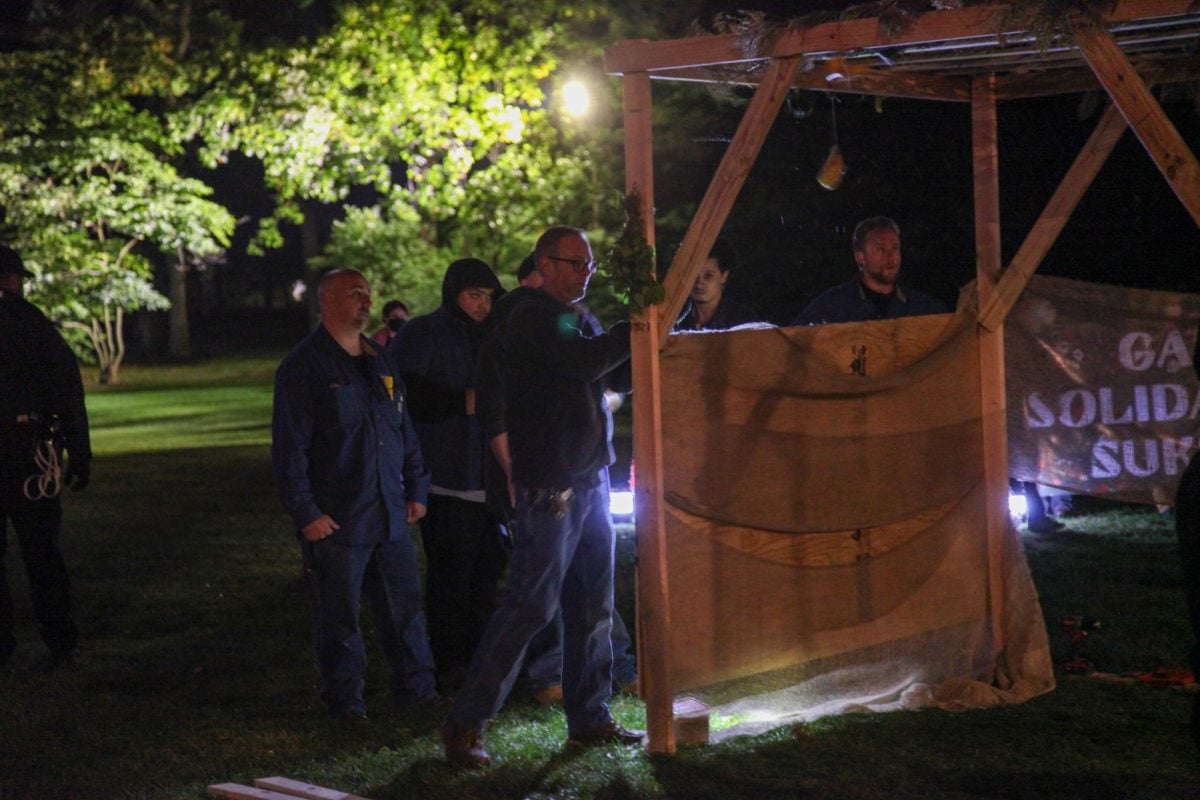More than 60 students and professors came together Monday night to debate the American Studies Association boycott of Israeli universities and the issue of academic freedom in the Israeli-Palestinian conflict.
Organized by Students for Justice in Palestine, the panel in Harris Hall featured three pro-boycott speakers, including Bill Mullen, a Purdue University professor who helped draft the ASA resolution endorsing the boycott. The event drew members from all sides of the issue, including representatives from Wildcats for Israel, J Street U Northwestern and Hillel.
Following the Dec. 4 ASA resolution endorsing the boycott, University President Morton Schapiro and Provost Dan Linzer rejected the boycott on the grounds of academic freedom, saying NU would maintain its partnerships with Israeli universities.
The panelists discussed the poor conditions surrounding Palestinian academics, noting Palestinians professors and students face harassment, cannot freely travel to interact with other scholars and often are living in areas of violent conflict.
“Where was a Northwestern president — where have they been in expressing the kind of outrage of this violation of academic freedom?” Mullen asked. “This is not just a double standard. This is the norm.”
Prof. Martha Biondi, chair of the African American studies department, and Uri Horesh, an Arabic lecturer, also spoke as panelists. All three speakers argued that the ASA boycott does not threaten scholarly exchange because it targets institutions as a whole, not individuals scholars.
The resolution is non-binding and voluntary, meaning any ASA member can oppose it and speak out against it with no sanctions, Biondi said.
NU’s discussion is part of a nationwide debate. The Native American and Indigenous Studies Association and the Association of Asian American Studies have also called for a boycott. In response, university leadership across the country have condemned the boycotts, some cutting ties with the ASA.
After the panel, the event turned to a broader discussion in which some students and professors challenged the view of the panelists. The University brought security for the event to keep the discussion civil, said Weinberg junior Dalia Fuleihan, co-president of SJP.
The recent debate on campus has made some students targets. The Associated Student Government and Student Affairs thought police presence might make audience members more comfortable, she said.
Weinberg sophomore Jonathan Kamel, president of Wildcats for Israel, questioned the the panelists about the benefit of cutting ties with universities when many oppose the Israeli occupation and the government’s policies.
“How do the supporters of this boycott grapple with understanding that by boycotting these institutions, we’re actually cutting off dialogues that could benefit Palestinians in the West Bank?” said Kamel, a former Daily staffer.
The panelists advocate for a boycott, divestment, sanction movement similar to the one used in South Africa. The movement can challenge politics at universities by demanding that a few leaders refrain from speaking on behalf of an entire institution. Supporters said it would not stem the flow of scholars and research among universities across the world.
Panelists said they have observed support for the boycott growing. The universities that reject the movement are doing the bidding of the Israeli state and the United States government that supports it, Mullen said, saying he felt strongly that the Israeli occupation of Palestinian territory meant the nation was not democratic.
“Israel is the last apartheid state on Earth. We have to bring it down,” Mullen said. “This can be the South Africa of your time, of my time.”
During the discussion, some audience members said they were skeptical that a distinction could be made between academic institutions in Israel and Israeli academics themselves. Some questioned the pragmatism of a boycott movement in effectively ending the conflict between Palestine and Israel.
Weinberg junior Josh Boxerman, a member of J Street U, an organization that advocates for a two-state solution, said he found it disappointing that the panelists wanted to pressure Israel into action instead of finding a more diplomatic answer.
Academic freedom and the Israeli occupation of Palestinian territory are crucial to the issue but the debate should also focus on a solution for peace, he said.
“All those issues are important but they need to be in context of what’s really going on,” Boxerman said after the event. “It’s important to talk about occupation but it needs to be in the context of ‘How do we really end it?’”
Email: [email protected]
Twitter: @allymutnick
